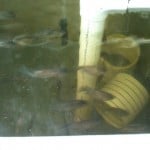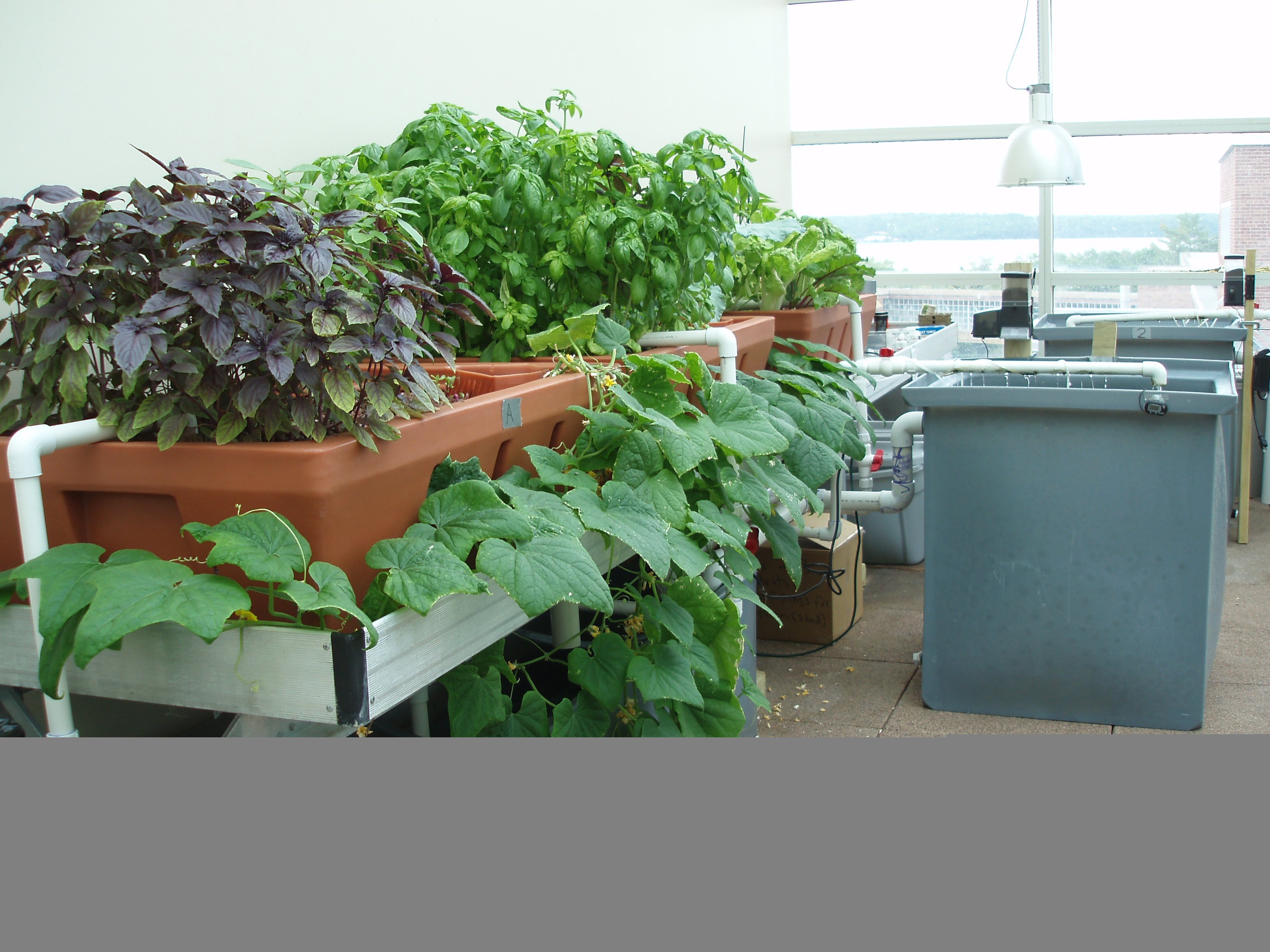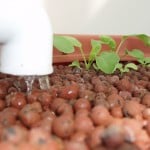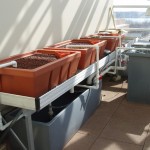Michigan Tech has ambitious plans to address the future of education, the contexts in which education operates, and the objectives and aims that a University education serves, given the expected disruptions resulting from external factors (you can read more about Tech Forward here). Discussions and meetings in the fall 2018 semester (you can read more about that process here) resulted in the announcement of big, broad Initiatives intended to create plans for proactively addressing the challenges faced by MTU, Universities, and the societies in which we live. One of the Initiatives is focused on Sustainability & Resilience, and the Working Group has been meeting regularly to discuss possibilities, priorities, and the principles that should guide Sustainability & Resilience activities at MTU — What do you think? What do you think Sustainability & Resilience should look like at MTU?
A new art exhibit, “U.P. Mosaic: A Working Landscape and its People” will open this month on the Northern Michigan University campus. Although the information is not yet up on the Beaumier Upper Peninsula Heritage Center‘s webpage, you can find details about the events on opening day (October 26th) through the Marquette Monthly magazine. The exhibit will run from October 26 through January 15, 2014, and will be open 10am to 4pm Monday through Saturday.
And finally a foodie post from my current haunts…. the UP Food Exchange website is up and running! Make it your first stop for information on local food news, farmers and markets, as well as an online market to increase agricultural connectivity across the three UP regions (Western, Central, and Eastern).
Michigan Tech has launched itself into the urban ag movement with an aquaponics set-up in the ninth floor greenhouse in the Dow. Established by Robert Handler (in the Sustainable Futures Institute) and Nancy Auer (Biological Sciences), the farm is producing basil, tomatoes, peppers, eggplants, and more than three dozen tilapia (in the large blue bins with the mesh on top). The water from the fish bins (filled with fish poop) circulates to the planted containers, where the plants use the fish fertilizer to grow. The water trickles through the soil, leaving through the bottom as clean water that is then circulated back into the fish tanks. Given the great success of its inaugural year, I can envision a steady flow of fresh, local veggies and fish appearing in the campus dining halls in the near future.
Prof. Nancy Auer and Dr. Robert Handler discussing the aquaponics system at Michigan Tech




Indiana University announced today that Prof. Elinor Ostrom, winner of the Nobel Prize in Economics in 2009, died today of pancreatic cancer.
Ostrom was a textbook example of why diversity in perspectives and ideas always benefits any profession. At a time when Garrett Hardin’s “Tragedy of the Commons” (when commonly owned resources are unsustainably exploited) was the ruling paradigm of resource management, Ostrom’s studies of resources managed sustainably by local communities pointed out the limitations of the Tragedy paradigm. As stated by the Royal Swedish Academy’s announcement at the time of her award:
“Elinor Ostrom has challenged the conventional wisdom that common property is poorly managed and should be either regulated by central authorities or privatized. Based on numerous studies of user-managed fish stocks, pastures, woods, lakes, and groundwater basins, Ostrom concludes that the outcomes are, more often than not, better than predicted by standard theories. She observes that resource users frequently develop sophisticated mechanisms for decision-making and rule enforcement to handle conflicts of interest, and she characterizes the rules that promote successful outcomes.”
I have been reading the “Northwoods Reader” series by Cully Gage (a.k.a. Charles Van Riper), describing life in the Upper Peninsula of Michigan at the turn of the last century. At that time, land and waterways in the UP were a patchwork of large land holdings by industry and government (federal, state, and local), and small holdings by private individuals and families. However, no individuals would have been able to survive the long UP winters without subsistence hunting and fishing, which often took place locally on lands other than those owned by the individual. There was a well-developed system of socially acceptable behaviors related to hunting and fishing, regarding the time of year, sex, size, and number of individuals harvested. The irrelevance of land ownership with respect to subsistence-level resource use seemed similar to Finland and Sweden’s “Everyman’s Rights”, where the concept of “trespassing” is not directly translatable. (No surprise that this system migrated with the many Finns who settled in the UP). I often can’t help but reflect upon Ostrom’s work when I read passages about the local hunting and fishing practices that the “Lansing bureaucrats” called poaching, a concept derided as naïve at best by the locals.
Every Saturday my four-year-old son and I start our errands by going to a local dairy farm (Hidden Acres Farm) to get a gallon of milk. Since moving to the UP, I’ve been trying to localize our food supply, mainly by gardening in our backyard, joining Wintergreen Farm (Community Supported Agriculture (or CSA)), buying eggs from a friend and now our milk.
Aside from sustainability concerns (e.g., carbon footprints, food miles, local jobs, slow food/money/life, and the like), I garden with my son and bring him to these places so that he understands not only where food comes from but also how it comes to be food. He knows that beans and seeds must be planted, fed, and watered to get plants that produce fruits and vegetables, he knows that chickens love worms (above all else), and now he knows how cows eat grass, how they keep flies off of them (ears and tail), and today what a cowpie looks like.
I was stunned at first when he pointed one out and asked what it was. I then realized that he hasn’t been around pastured cows before (just those at the zoo) and therefore has never had the opportunity to see a cowpie. I grew up in a suburb of Chicago, but I had nearby opportunities to be exposed to nature (in the Forest Preserves) and agriculture (such as Wagner Farm in Glenview) where I was able to figure out things like cowpies. We are only now understanding how critical this exposure to the natural world is for young children and their development. I suppose I have taken my early exposure for granted up until now.
On the way back to our car, one of the farm owners greeted us and I told her that my son had seen his first cowpie today. I’m sure on the inside she was rolling her eyes at such a bizarre and slightly pathetic revelation, but she smiled and said, “My son calls those ‘nasty cow pasties'”. Very fitting!
Here’s the info on both speakers:
Please join us for a presentation and informal discussion concerning
“The Threat of Metallic Sulfide Mining Expansion in the Great Lakes Region”
Kristi Mills of Save the Wild UP will lead this discussion. Her presentation will be from the standpoint of a concerned citizens activist group and will cover current and prospective future operations, citizens’ concerns, and the process of organizing against the mines and challenges and opportunities Save the Wild UP has faced.
Date: Thursday, October 13
Time: 12-1:00
Place: Memorial Union Ballrooms B2/B3
Lunch: Please feel free to bring a lunch
The broader campus community is invited, so please spread the word. We’d like to see this event well attended. You can find out more about Save the Wild UP at www.savethewildup.org
In a related presentation:
David Anderson from Orvana Resources will discuss mining and community development in the UP from the industry perspective on Tuesday, October 25 from 12-1:00pm, in the Memorial Union Ballroom B2/B3. Please feel free to bring a lunch.
Anyone with questions should contact Prof. Richelle Winkler (rwinkler <at sign> mtu.edu)
Prof. Richelle Winkler, a new faculty member in Social Sciences, is arranging for pro- and anti-mining speakers to give short presentations on campus regarding mining in the UP. The information for the anti-mining speaker has been set; no firm details yet on the pro-mining speaker (but stay tuned here for an update!)
Current Mining Activities in Michigan’s Upper Peninsula
Date: Thursday, October 13
Time: 12-1:00
Place: Memorial Union Ballrooms B2/B3
Students, faculty, and staff are invited to attend an informal lunchtime discussion with Kristi Mills from Save the Wild UP (http://www.savethewildup.org/) about current mining efforts in Michigan’s Upper Peninsula and the organization’s efforts to protect community and environmental well-being. Kristi will offer a presentation and allow time for discussion. Please feel free to bring your lunch. This event is being sponsored by the Social Science Department, Program on Environmental Policy, Program on Industrial Archaeology, and Students for a Sustainable Environment.